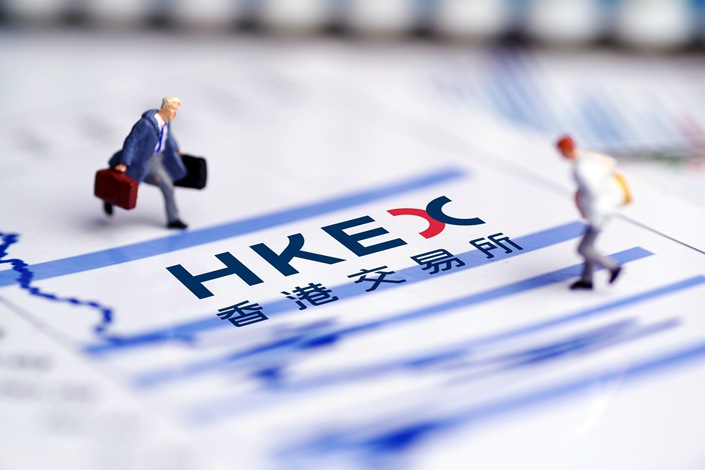
An article on whether Hong Kong is ready for Chinese stocks exiled from New York has been widely circulated on social media recently. The gist of the article is that Hong Kong investors aren’t as accepting of emerging sectors as international investors as the city’s capital market lacks liquidity. If Chinese companies that delist from the U.S. market relist in Hong Kong, not only will the valuation of these companies drop, but they will impact small- and mid-cap companies listed in Hong Kong.
Indeed, the average daily trading volume is $400 billion on the New York Stock Exchange and Nasdaq collectively, $200 billion in the Chinese mainland stock market, and only $25 billion in Hong Kong. There is no doubt that the U.S. market is more liquid. For instance, the shares of e-commerce giant Alibaba Group Holding Ltd. have an average daily trading volume of $3.6 billion in the U.S., compared to $900 million in Hong Kong. The difference in liquidity leads to different valuations. Dual-listed Chinese companies are usually valued higher in the U.S. than in Hong Kong.
The article notes that the top 20% most traded stocks in Hong Kong, usually large-cap ones, contribute more than 90% of the market’s liquidity. Companies with a market cap below $3 billion tend to have low liquidity. Also, there are already more than 200 companies lining up for IPOs in Hong Kong. The Hong Kong Stock Exchange (HKEX) is understaffed and its processing speed is slow, so relisting in Hong Kong will take a long time, the article says.
Read more Opinion: Is Hong Kong Ready for Chinese Tech Stocks Exiled From New York?
These points are valid, and are the key reason why the performance of Hong Kong stocks over the past decade has been less than satisfactory to investors. But they are worth revisiting.
First, in the past, the Hong Kong stock market mainly consisted of companies with low valuations such as those from traditional financial, real estate, and consumer retail sectors. Very few listed companies were in emerging industries, so it’s no surprise that international investors didn’t pay much attention to the market. The U.S. market, on the other hand, is like a supermarket with a wide range of items on its shelves, so its liquidity is undoubtedly high. Now if big-name Chinese stocks delist from the U.S. and relist in Hong Kong, even at a slow pace, there will gradually be abundant and diverse items on the HKEX’s shelves, and the market’s liquidity will improve subsequently.
Second, although the Hong Kong market is less liquid than both the markets in the U.S. and the Chinese mainland, it is still one of the most liquid in the world, with plenty of room for future growth. Its trading volume has grown significantly over the past 20 years. With more quality Chinese stocks in the future, the Hong Kong stock market’s liquidity will improve accordingly.
Third, although the trading volume of the Hong Kong stock market is significantly lower than that of the U.S. market, the market cap of Hong Kong Exchanges and Clearing Ltd., the operator of the HKEX, has ranked first among global exchanges for years. This has to do with the company’s unique status and business model. Therefore, if dual-listed big Chinese companies become solely listed in Hong Kong, they will become more unique, and may have higher valuations.
Fourth, it is important for international investors to reduce risks by diversifying their portfolio. Chinese companies that relist in Hong Kong are no longer subject to regulatory risks in the U.S., and the regulatory tightening in China is also nearing its end. Going forward, Chinese companies that relist in Hong Kong will face smaller regulatory headwinds.
Fifth, over the years, the trends in Chinese mainland, Hong Kong and U.S. stock markets have become less synchronized, and the returns have become significantly less connected. For international investors, more exposure to mainland stocks and Hong Kong stocks of relisted Chinese companies can help reduce the overall risk of their portfolio.
Sixth, the HKEX has proposed new listing rules for special purpose acquisition companies (SPACs), which can significantly shorten the listing process. Even if it will take some time for Chinese companies to relist in Hong Kong, a slow bull market would still appeal to mature investors.
Generally speaking, we believe that the Hong Kong stock market has the opportunity to remake itself with the return of U.S.-listed Chinese companies. Those who predict the future of the market based only on its past performance may miss out on great opportunities.
Xia Chun is chief economist of Yintech Investment Holdings Ltd.
This commentary has been edited for clarity and length.
Editor’s note: The article on whether Hong Kong is ready for Chinese stocks exiled from New York was published on a social media account on Tuesday, which has stirred strong debate within financial circles. Caixin published an English version of the article on Thursday.
Contact translator Zhang Yukun (yukunzhang@caixin.com) and editor Joshua Dummer (joshuadummer@caixin.com)
Get our weekly free Must-Read newsletter.







